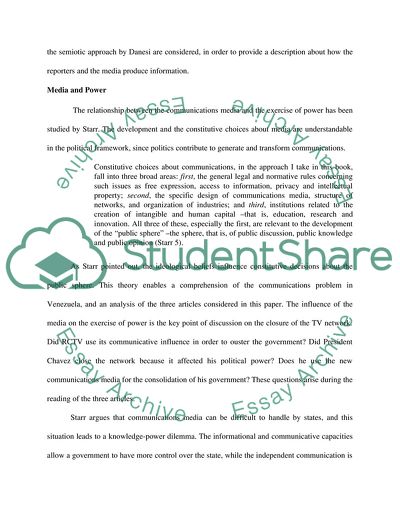Cite this document
(Representation of the Closure of RCTV in Venezuela by U.S. News Media Coursework Example | Topics and Well Written Essays - 1750 words - 1, n.d.)
Representation of the Closure of RCTV in Venezuela by U.S. News Media Coursework Example | Topics and Well Written Essays - 1750 words - 1. https://studentshare.org/media/1707979-communication
Representation of the Closure of RCTV in Venezuela by U.S. News Media Coursework Example | Topics and Well Written Essays - 1750 words - 1. https://studentshare.org/media/1707979-communication
(Representation of the Closure of RCTV in Venezuela by U.S. News Media Coursework Example | Topics and Well Written Essays - 1750 Words - 1)
Representation of the Closure of RCTV in Venezuela by U.S. News Media Coursework Example | Topics and Well Written Essays - 1750 Words - 1. https://studentshare.org/media/1707979-communication.
Representation of the Closure of RCTV in Venezuela by U.S. News Media Coursework Example | Topics and Well Written Essays - 1750 Words - 1. https://studentshare.org/media/1707979-communication.
“Representation of the Closure of RCTV in Venezuela by U.S. News Media Coursework Example | Topics and Well Written Essays - 1750 Words - 1”. https://studentshare.org/media/1707979-communication.


